14. A Dangerous Method (2011)
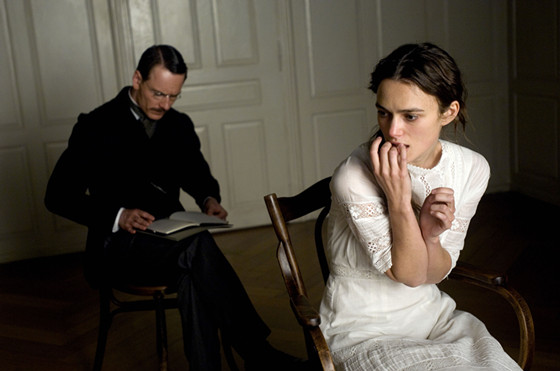
Adapted by Christopher Hampton from his play “The Talking Cure”, and set during the brink of World War I, A Dangerous Method represents the third consecutive collaboration between Cronenberg and Viggo Mortensen––after A History of Violence and Eastern Promises.
Ostensibly the tale of Sigmund Freud (Mortensen), Carl Jung (Michael Fassbender), and the birth of psychoanalysis, the subject matter, particularly pertaining to sexuality, repression, and provocation, is custom fit for Cronenberg’s sensibilities.
Rounding out the cast is an excellent turn from Keira Knightley as Sabina Spielrein––who would eventually become one of the first female psychoanalysts––and a superb Vincent Cassel as Otto Gross. An absorbing, deeply political, and exceptionally restrained drama about 20th-century intellectuals. Excellent.
13. eXistenZ (1999)
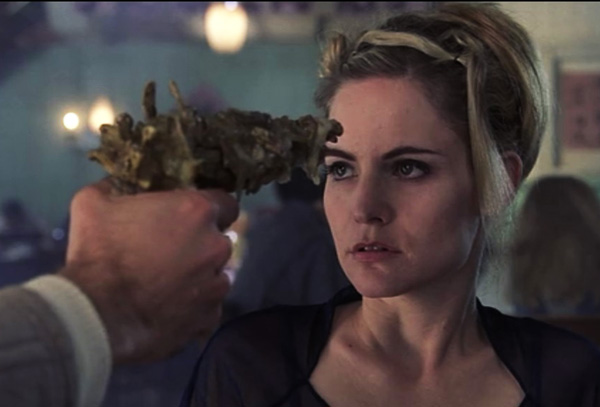
Often overshadowed by the similarly themed and likewise reality questioning sci-fi thriller The Matrix––which was released three weeks prior––Cronenberg’s mind-bending virtual-reality foray eXistenZ offers a more cerebral satisfaction than the Wachowski’s action blockbuster.
Set in a strange near future where video game aficionados have no problem getting bio-ports surgically implanted into their spines and regularly plug into organic gaming pods with alacrity, eXistenZ has aged incredibly well since it’s rather lacklustre debut.
Allegra Geller (Jennifer Jason Leigh) is a superstar game-designer for Antenna Research who is set to unveil her latest hit creation “eXistenZ” when she finds herself under attack by “realist” terrorists who are appalled by gaming culture’s “deforming of reality.” Add one Ted Pikul (Jude Law), a security guard who’s easy on the eyes and assigned to protect Allegra.
An original screenplay from Cronenberg that was inspired by the real-life Fatwa placed on author Salman Rushdie in the wake of his novel “The Satanic Verses” which upset Muslim extremists.
Other highlights of this thoughtful and detailed sci-fi detour include Cronenberg’s trademark gooey-ness––particularly a “gristle gun”––and other assorted body horror goodies. eXistenZ also received Berlin’s Silver Bear for outstanding artistic achievement. This oft under-praised jewel is worth another look, particularly for those who wrote it off as derivative of the Matrix, which it’s arguably superior to, honestly.
12. The Dead Zone (1983)
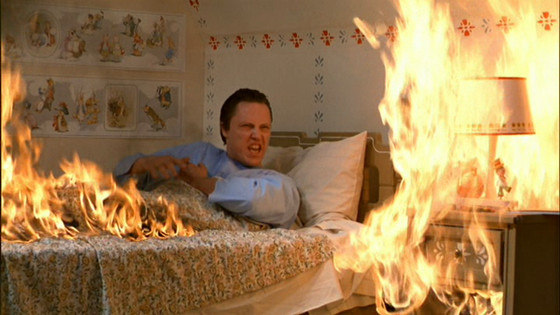
Based on Stephen King’s 1979 bestseller, The Dead Zone was Cronenberg’s first film for a Hollywood studio and first feature (Fast Company aside) not to emerge from an original Cronenberg screenplay. As shy and sweet-natured schoolteacher Johnny Smith, Christopher Walken is superb, and oh so pitiable when, awakening from a coma after a terrible car crash he is “blessed” with psychic abilities beyond his control.
This strange and terrible “gift” of course proves to be more of a curse, thus sending Johnny into retreat, that is until a chance encounter with a self-starting right-wing U.S. Senatorial candidate named Greg Stillson (Martin Sheen), presents a potential catastrophe that pulls Johnny into a challenging situation that he cannot in good conscience ignore.
An emotionally resonant and smartly restrained psychodrama, particularly for Cronenberg, The Dead Zone is a glittery prize amongst Stephen King’s adapted works, an eerie occult tale, and a wonderful three-act drama to boot, this films also feels eerily and fittingly prophetic, particularly in light of Trump’s America. Not to be missed.
11. Shivers (1975)
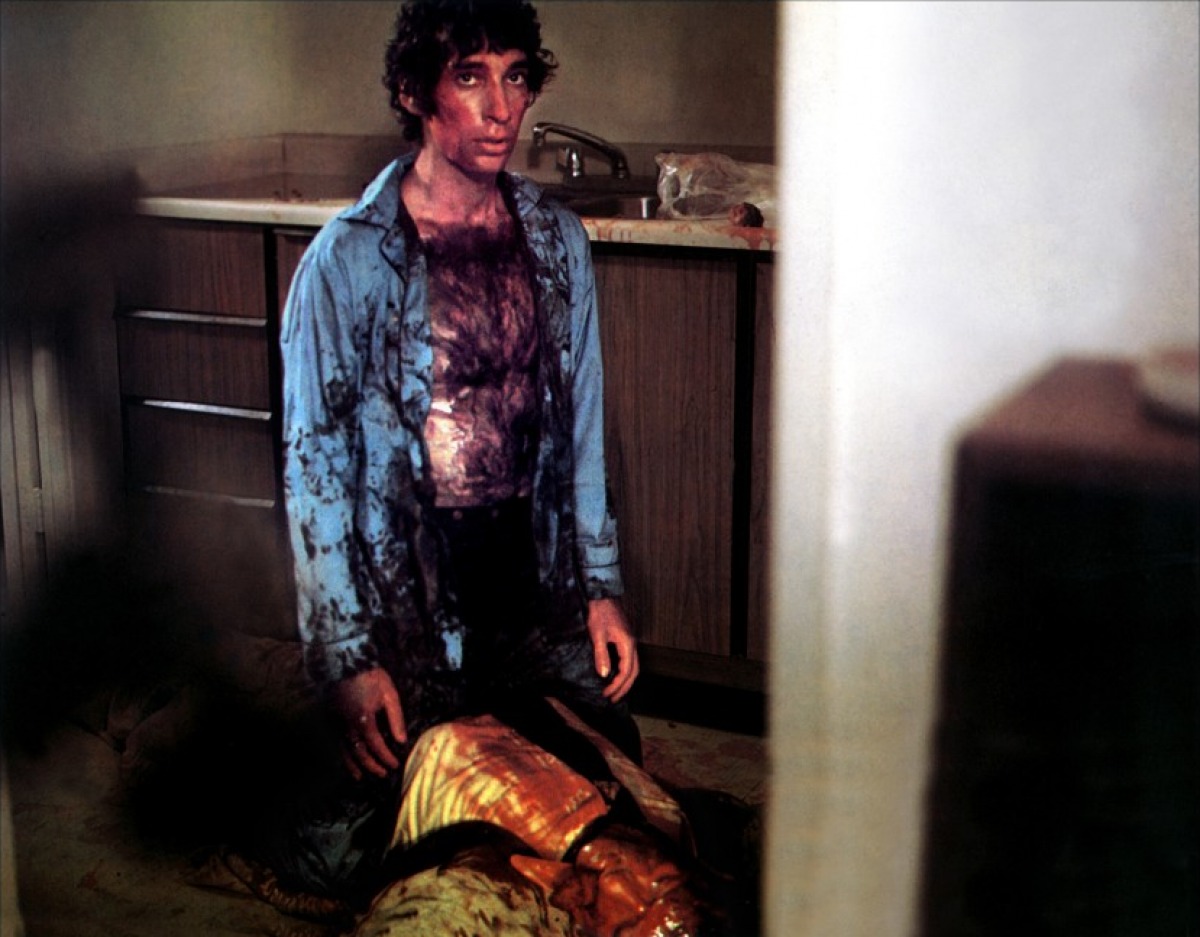
Originally titled “Orgy of the Blood Parasites,” this sensationalistic fright flick concerns a misguided scientist after “a combination of aphrodisiac and venereal disease that will hopefully turn the world into one beautiful, mindless orgy,” but instead lets loose a deadly parasite within a Montreal apartment complex whose residents, as a result, turn into sex-crazed murderous psychopaths.
Eschewing the experimental nature and microbudget of his earlier works, Shivers marks Cronenberg’s first commercial feature and stigmatized him as something of “an atrocity” thanks to Saturday Magazine’s Robert Fulford.
Fulford, an uptight hack, let’s be honest, paid unwarranted and deeply damaging lip service towards the filmmaker, dubbing Cronenberg “a disgrace to taxpayers” as the film was funded via CFDC (Canadian Film Development Corporation) financing via his notorious and widely circulated article entitled “You Should Know How Bad This Movie Is, You Paid For It.”
This regrettable and wholly unnecessary incident made it terribly challenging for Cronenberg’s following features to secure funding, even though Shivers banked decent box-office and was well reasonably well-received, particularly amongst horror-fans, auteur-admiring critics, and genre publications. Fulford was mostly trying to make a name for himself, and today, depending on who you ask, that name he garnered was “jealous asshole.”
10. Spider (2002)
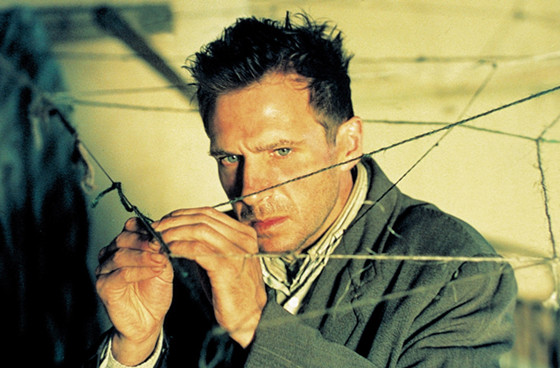
Meticulously controlled and expectedly upsetting, Spider marks Cronenberg’s first film of the new century and ushered in for him a new era of accomplishment, confidence, and moving maturity. Adapted from Patrick McGrath’s 1990 novel of the same name and buttressed by a powerhouse performance from Ralph Fiennes, Cronenberg boldly presents this fractured narrative from the subjective point of view of Dennis Cleg, nicknamed “Spider”.
A schizophrenic recently released from a decades long stint in an asylum, Dennis finds himself in the grim and grimy streets of 1950s East London, and as a resident in a halfway house for mentally disturbed persons where he’s assailed by traumatic and repressed childhood memories.
These memories frequently involve his father, his father’s mistress, and his mother in sequences that evoke Woody Allen’s Annie Hall, if Allen was on messy barbiturates that is. The first-rate cast include Gabriel Byrne, Lynn Redgrave, and a dazzling double role from Miranda Richardson. Spider spins a delicate and disturbing web you’ll have a hard time untangling yourself from.
9. The Brood (1979)
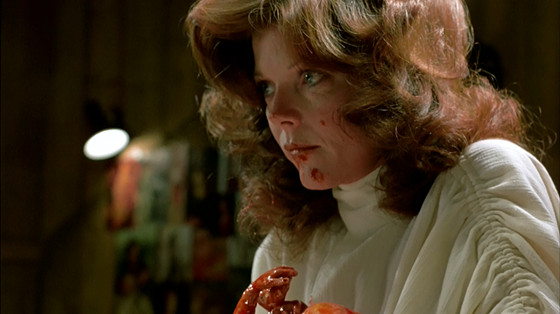
Regularly cited as one of the director’s most personal works, The Brood also marked Cronenberg’s first box-office success. Nola Carveth (Samantha Eggar) is a deeply disturbed woman who, after a failed marriage and subsequent mental collapse undergoes experimental psychotherapy at the Somafree Institute, under the watchful eye of one Dr. Hal Raglan (Oliver Reed). Nola’s subconscious mind produces a violent and titular brood of “psychoplasmic” offspring, children who avenge her feelings of unchecked anger and inner turmoil.
Cheekily described by Cronenberg as his own refracted and messed up version of Kramer vs. Kramer, what makes this work so personal for him is that it was inspired by the disintegration of his first marriage and the results add up to an audaciously original and startlingly smart, emotionally riveting horror odyssey.
8. Rabid (1977)
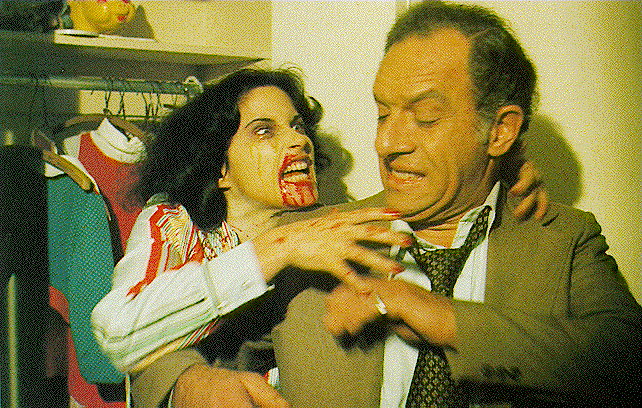
This startlingly sophisticated and shocking cult favorite overflows with all of Cronenberg’s key motifs; apocalyptic cataclysm, body horror, murderous mutation, rampant paranoia, sexually transmitted disease, and troublesome scientists. Porn star Marilyn Chambers is Rose, a young Quebecois woman horribly disfigured after a motorcycle accident and guinea pig for an outre experimental skin-grafting procedure that will restore her considerable beauty but with some nasty side effects.
These side effects include, but are not limited to, a phallus-like stinger in her armpit that helps to spread a rabies-like contagion that has those infected foaming-at-the-mouth and roaming Montreal on uncontrollable killing sprees.
As the plague spreads throughout the city the authorities enforce martial law in an attempt to quell the epidemic with, of course, loathsome results.
An influential and groundbreaking horror film, a remake by the genre directors Jen and Sylvia Soska is expected in late 2017 that should provide some interesting results, though it would be difficult to match the obsessive spirit and unexpected exigency of Cronenberg’s bold original.